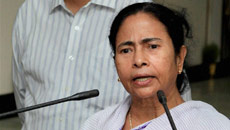The crisis-ridden real estate sector, feeling neglected by the United Progressive Alliance (UPA) government, is warming up to the Bharatiya Janata Party (BJP) and its prime ministerial candidate Narendra Modi to lift its fortunes. In the wake of economic instability, the realty industry has been facing severe stress with a clouded investment outlook. Its industry captains are looking forward to a strong and stable government that can put the battered economy back on rails and undertake the necessary reforms to revive the real estate sector.
The apex body of real estate developers, the Confederation of Real Estate Developers Associations of India (CREDAI), has been quite critical of the UPA government's policies, and in denying the sector its rightful due. It laments that the real estate sector that contributes six percent to the country's gross domestic product (GDP) is also burdened with heavy taxes - it amounts to over 30 percent, with stamp duty alone amounting to Rs.32,000 crore ($5.3 billion).
This, the association maintains, results in high property prices. It is also unhappy with the UPA government for not paying any heed to its appeals for drafting suitable policies that can contribute effectively to growth. Instead, it says, the UPA government gave a goby to the 11th Five Year Plan document that called for a focus on urbanisation through deregulation and the development of land to achieve the 9-10 percent growth target. Moreover, no action has been taken on crucial task committee reports on affordable housing, simplification of approval processes and rental housing.
One of the most crucial reforms that has been hanging fire for the last several years pertains to the setting up of a real estate regulatory authority to safeguard the interests of property buyers by ensuring hassle-free, safe and transparent transactions.
The apex association has charged the UPA government with framing a regulatory bill that, instead of being a facilitator, will result in an "inspector raj" as banking, planning, approval and environmental authorities were not under the purview of the bill. It believes that the bill can be used as a tool to achieve double-digit growth only if some issues like floor space ratio, online sanctioning, taxation and funding are brought under its purview.
The BJP is sympathetic to these issues faced by the real estate sector and party president Rajnath Singh had extended support to the association at its recent conclave in New Delhi. The party is also in support of taking corrective measures to liberalise the commercial real estate funding business, which is highly skewed.
It is a matter of concern that banks' exposure to the real estate sector is merely three percent in India, compared to 22 percent in China and 30 percent in the US. Even real estate investment trusts (REITs) that promise retail investors safe investment with regular returns and help developers raise funds without development risk have failed to take off in the past few years.

During the tenure of the Atal Bihari Vajpayee government between 1998 and 2004, significant emphasis was given to real estate and infrastructure development. Enabling policy measures like low home loan rates, tax relief on home loans and the National Highway Development Project contributed significantly to the economy, with record job generation of 67 million, against the 2.7 million in the UPA regime from 2004-10, as per official data. India had also became a current account surplus country then.
A broad and emphatic outline of the policies and reforms needed to put real estate and infrastructure development on the fast track is already given in a fair amount in BJP's manifesto for the Lok Sabha elections. It will be interesting to watch if the real estate sector can get "Modi-fied" in the coming months.





